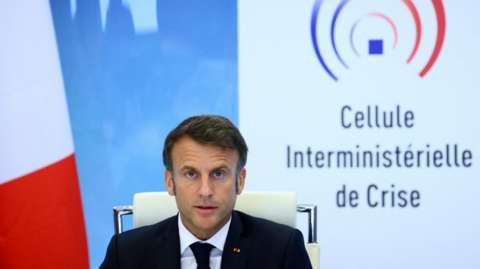Prime Minister Keir Starmer’s recent U-turns on benefit reform and winter fuel payments have opened a £4.5 billion hole in the UK’s public finances, according to a warning from the Resolution Foundation.
The top economic think tank revealed that the Prime Minister’s climbdown on the welfare bill is significantly costlier than previously anticipated and will likely lead to higher taxes or further cuts elsewhere.
The Resolution Foundation estimates that these revisions, coupled with the rollback on winter fuel support, will place added strain on Chancellor Rachel Reeves’ autumn Budget. According to the analysis, the changes were made to protect all existing recipients of Personal Independence Payments (PIP), a key disability benefit that will cost £2.1 billion annually by 2030.
Additionally, safeguarding the incomes of the 2.2 million people receiving the health element of Universal Credit could cost up to another £1.1 billion per year. This means nearly £3.2 billion of the £5 billion the government initially hoped to save through welfare reforms will now be erased.
The Institute for Fiscal Studies (IFS) echoed these concerns, with its calculations showing the latest welfare reversal would cost around £3 billion—cutting away over half of the original savings.
“These changes make further tax rises in the Autumn Budget, which will mainly be dependent on how economic forecasts change, even more likely.”
Institute for Fiscal Studies
Associate director Tom Waters remarked that the chancellor’s already delicate balancing act had become “that much harder.”
Tax Rises Now Seem More Likely
On top of welfare protections, the Prime Minister’s decision last month to reinstate winter fuel payments for seven million pensioners will cost an estimated £1.3 billion. Combined with the welfare changes, Starmer now faces a £4.5 billion fiscal gap.
Jonathan Portes, professor of economics at King’s College London and former Cabinet Office chief economist, believes tax increases are inevitable.
“I thought that was very likely anyway. I think that the benefits stuff just reinforces the basic point that demographics and public demand for better public services mean that somewhat higher taxes are required and it is long past time politicians were honest about that.”
Jonathan Portes

Despite mounting questions over how these changes will be funded, Care Minister Stephen Kinnock declined to speculate. He indicated that Chancellor Rachel Reeves would reveal funding mechanisms during her autumn Budget.
Starmer’s U-turn followed rising pressure from within the Labour Party, as over 120 MPs signed a rebel amendment threatening to derail the welfare bill. In a late-night concession, Starmer agreed to preserve PIP for existing claimants and launch a new review into the assessment process, to be co-led by Disabilities Minister Sir Stephen Timms and co-produced with disabled people.
A Downing Street spokesperson explained the move as a balancing act.
“We have listened to MPs who support the principle of reform but are worried about the pace of change for those already supported by the system. This package will preserve the social security system for those who need it by putting it on a sustainable footing, provide dignity for those unable to work, support those who can and reduce anxiety for those currently in the system.”
Downing Street spokesperson
Dame Meg Hillier, one of the Labour MPs who led the opposition, welcomed the government’s concession. “It’s encouraging that we have reached what I believe is a workable compromise that will protect disabled people and support people back into work while ensuring the welfare system can be meaningfully reformed,” she said.
Although some MPs plan to continue their rebellion by voting against the bill, the concessions are expected to secure enough support for it to pass in the House of Commons. This averts what could have been a deeply embarrassing defeat for the Prime Minister just months into his tenure.
READ ALSO: Northern Gaza Cut off From Aid




















